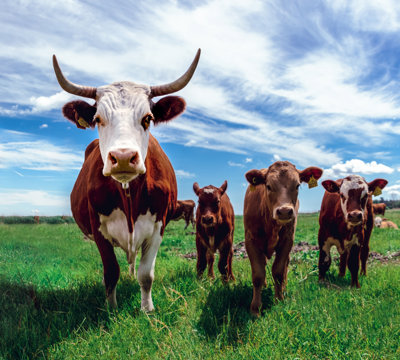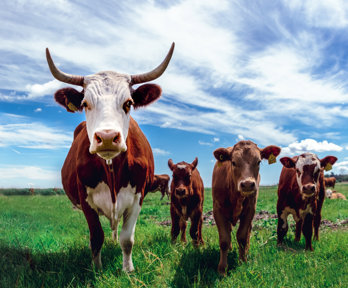This module has two aims: firstly to introduce younger students to the methodology of producing food. Where does their food, often processed and unrecognizable, actually come from?; secondly, to introduce students to some of the wide ranging topical issues related to food and food production.
This is, without doubt, a vast and complex topic which, at Key Stage 3 (KS3), teachers can only scratch the surface of, but in doing so they will provide a background for further study at GCSE and beyond. For those studying geography only at KS3, this topic raises awareness of issues which have local and global implications. Students can play an active part in shaping their future by having a better understanding of these complex and challenging food-related issues.
Where does food come from? Lesson one starts by looking at where our food actually comes from - who produces it and how. It asks students to think about what processed foods are made from, introduces students to the two principle types of farming and to the idea that the foods we eat in the UK comes from all over the world.
Hunger and malnutrition It is a distressing fact that the world produces more than enough food to feed the six billion plus people on planet earth and yet large numbers continue to be malnourished and in some cases starve. How is this possible in the 21st century? Lesson two aims to tackle this difficult and emotive topic through exploring both the causes of malnutrition and where the problem of undernourishment is most severe.
Importing and exporting food Lesson three looks at the issues around rich counties importing food from poorer, less economically developed countries. In recent times the media has made much of the fact that in the UK and other similar countries, we now depend for much of our food on farms in developing countries such as Kenya, Chile and Vietnam. A study of this issue raises a number of dilemmas ranging from using land in poorer countries to feed us rather than the people living there, through to increasing ‘food air miles' which threaten to exacerbate the global climate change problem. As with so many of these food issues, people are, in general, uncertain as to what to do for the best. Providing a better understanding will help the young students to make informed decisions as they grow up.
The government would like us to eat a healthy and balanced diet, and part of that process involves thinking about the type of food we eat. Lessons four and five relate to this but from very different angles.
Organic food vs intensive farming methods Lesson four looks at the value of growing food organically versus intensive farming methods which undoubtedly are needed to provide sufficient food to feed a growing population. It considers the advantages and disadvantages of each method.
Plenty more fish in the sea? Lesson six looks at the oceans where fish stocks are dwindling fast due to over-fishing on a massive scale; we currently have enough fishing capacity in the world to fish the equivalent of four planet earths! It asks the question ‘should we ban all fishing or should we rely instead on moving to a system of farming fish?'. There are no easy answers but part of the solution to both these issues lies with consumers and students need to be in a position where they can play their part. Much of this work is about possible, probable and preferable futures.
Biofuels - a green option? Lesson six takes a hot topic which is likely to remain in the news for some considerable time to come: biofuels. These were seen by some as the saviour of a world dominated by fossil fuels, a chance to get away from resources which were finite and close to running out, controlled by a minority of countries and which were polluting our planet and leading to global climate change. As farmers across the world were encouraged by government initiatives to grow these biofuels, it was quickly realised that it was all going horribly wrong. The recent rapid increase in basic food prices for staples such as rice and wheat were at least partly attributable to growing demand for biofuels. This has lead to increased hunger and riots in some parts of the world. Additionally, in the rush to produce palm oil and other valuable biofuels, countries in parts of SE Asia and elsewhere, set out to clear some of the few remaining rainforests and other precious habitats. Now, no one knows how to stop a process that was started with good intentions but is leading to all sorts of unforeseen consequences for the world.
Rising food prices Lesson seven looks at the impact of rising global food prices and how this impacts in different ways in various ways in different countries across the world. The module provides opportunities to focus on particular places such as the UK, Kenya and Indonesia but also deals with global issues. It demonstrates the importance of understanding how we live in world where interdependence is a vital concept - everything we do as individuals and as a country has an impact on other countries and on the world. There are many examples of how our human actions impact on the natural environment and that sustainable development, whilst a laudable goal, is extremely difficult in practice to achieve. Finally, the module demonstrates that people's values and attitudes do vary across the world and as such, have a powerful influence on the issues that we are confronting on a daily basis.

